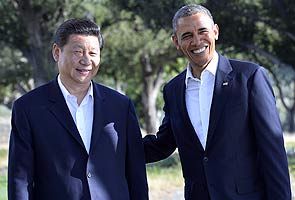However, he still warned of sobering days, saying the war will remain a "very difficult endeavour."
Assessing the war one year after he ordered a major increase in troops, Obama said the goal is not to defeat every threat to
Rather, he said, the
"We are on track to achieve our goals," Obama told a news briefing at the White House on Thursday.
Yet he added that progress has not come fast enough in
The President also warned that the gains over the last year were fragile and reversible.
The goal is for the US-led coalition of nations to turn over control of Afghan security by the end of 2014, which means that US troops will remain in the embattled country for at least four more years.
A US-led coalition went to war in
They also aimed to overturn the Taliban regime which had given safe haven and a base to al-Qaida.
On Thursday, Obama said that the
At least 480 American troops have been killed in 2010 in the war, and more than 2,100 have died since the conflict began.
The pace and scope of the
US Defence Secretary Robert Gates told reporters that the pace of withdrawal would accelerate based on local conditions.
A defining issue in the months ahead will be the degree to which the
There are now roughly 100-thousand
Obama, who has significantly escalated the scope of the war and always centered that effort on defeating al-Qaida, claimed his most progress to date in a war which has become one of the longest in US history.
When asked about the shifting public opinion towards the war,
But she added that "but I don't think leaders - and certainly not this president - will not make decisions that are matters of life and death and the future security of our nation based on polling. That would not be something that you would see him or any of us deciding."
Obama broadly described a war effort that, in his view and those of his national security team, is working but has serious challenges ahead.
He spoke of progress in breaking the Taliban's momentum, boosting civilian efforts, expanding cooperation with
Yet questions loom not just about militant bases in
Gates rejected scepticism that the review may be sugarcoated, insisting that prospects of success and the progress reports have been realistic.

No comments:
Post a Comment